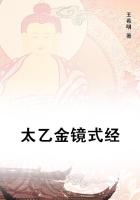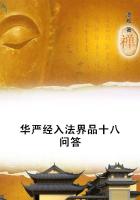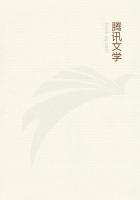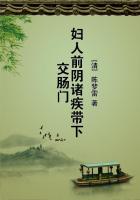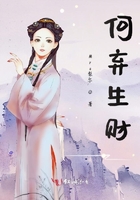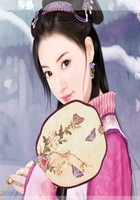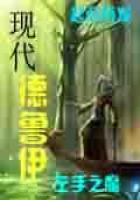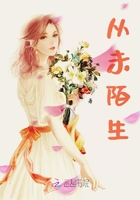On the altar, flowers and incense are offered up in the memory of the great contributions which these sages made to Zen.We have already said that it was the ritual instituted by the Zen monks of successively drinking tea out of a bowl before the image of Bodhi Dharma, which laid the foundations of the tea-ceremony.
We might add here that the altar of the Zen chapel was the prototype of the Tokonoma,--the place of honour in a Japanese room where paintings and flowers are placed for the edification of the guests.
All our great tea-masters were students of Zen and attempted to introduce the spirit of Zennism into the actualities of life.
Thus the room, like the other equipments of the tea-ceremony, reflects many of the Zen doctrines.The size of the orthodox tea-room, which is four mats and a half, or ten feet square, is determined by a passage in the Sutra of Vikramadytia.
In that interesting work, Vikramadytia welcomes the Saint Manjushiri and eighty-four thousand disciples of Buddha in a room of this size,--an allegory based on the theory of the non-existence of space to the truly enlightened.Again the roji, the garden path which leads from the machiai to the tea-room, signified the first stage of meditation,--the passage into self-illumination.The roji was intended to break connection with the outside world, and produce a fresh sensation conducive to the full enjoyment of aestheticism in the tea-room itself.One who has trodden this garden path cannot fail to remember how his spirit, as he walked in the twilight of evergreens over the regular irregularities of the stepping stones, beneath which lay dried pine needles, and passed beside the moss-covered granite lanterns, became uplifted above ordinary thoughts.One may be in the midst of a city, and yet feel as if he were in the forest far away from the dust and din of civilisation.Great was the ingenuity displayed by the tea-masters in producing these effects of serenity and purity.The nature of the sensations to be aroused in passing through the roji differed with different tea-masters.Some, like Rikiu, aimed at utter loneliness, and claimed the secret of ****** a roji was contained in the ancient ditty:
"I look beyond;/Flowers are not,/Nor tinted leaves./On the sea beach/A solitary cottage stands/In the waning light/Of an autumn eve."Others, like Kobori-Enshiu, sought for a different effect.
Enshiu said the idea of the garden path was to be found in the following verses:
"A cluster of summer trees,/A bit of the sea,/A pale evening moon."It is not difficult to gather his meaning.He wished to create the attitude of a newly awakened soul still lingering amid shadowy dreams of the past, yet bathing in the sweet unconsciousness of a mellow spiritual light, and yearning for the ******* that lay in the expanse beyond.
Thus prepared the guest will silently approach the sanctuary, and, if a samurai, will leave his sword on the rack beneath the eaves, the tea-room being preeminently the house of peace.
Then he will bend low and creep into the room through a small door not more than three feet in height.This proceeding was incumbent on all guests,--high and low alike,--and was intended to inculcate humility.The order of precedence having been mutually agreed upon while resting in the machiai, the guests one by one will enter noiselessly and take their seats, first ****** obeisance to the picture or flower arrangement on the tokonoma.The host will not enter the room until all the guests have seated themselves and quiet reigns with nothing to break the silence save the note of the boiling water in the iron kettle.The kettle sings well, for pieces of iron are so arranged in the bottom as to produce a peculiar melody in which one may hear the echoes of a cataract muffled by clouds, of a distant sea breaking among the rocks, a rainstorm sweeping through a bamboo forest, or of the soughing of pines on some faraway hill.
Even in the daytime the light in the room is subdued, for the low eaves of the slanting roof admit but few of the sun's rays.
Everything is sober in tint from the ceiling to the floor; the guests themselves have carefully chosen garments of unobtrusive colors.
The mellowness of age is over all, everything suggestive of recent acquirement being tabooed save only the one note of contrast furnished by the bamboo dipper and the linen napkin, both immaculately white and new.However faded the tea-room and the tea-equipage may seem, everything is absolutely clean.
Not a particle of dust will be found in the darkest corner, for if any exists the host is not a tea-master.One of the first requisites of a tea-master is the knowledge of how to sweep, clean, and wash, for there is an art in cleaning and dusting.A piece of antique metal work must not be attacked with the unscrupulous zeal of the Dutch housewife.Dripping water from a flower vase need not be wiped away, for it may be suggestive of dew and coolness.
In this connection there is a story of Rikiu which well illustrates the ideas of cleanliness entertained by the tea-masters.Rikiu was watching his son Shoan as he swept and watered the garden path.
"Not clean enough," said Rikiu, when Shoan had finished his task, and bade him try again.After a weary hour the son turned to Rikiu: "Father, there is nothing more to be done.The steps have been washed for the third time, the stone lanterns and the trees are well sprinkled with water, moss and lichens are shining with a fresh verdure; not a twig, not a leaf have I left on the ground." "Young fool," chided the tea-master, "that is not the way a garden path should be swept." Saying this, Rikiu stepped into the garden, shook a tree and scattered over the garden gold and crimson leaves, scraps of the brocade of autumn! What Rikiu demanded was not cleanliness alone, but the beautiful and the natural also.

